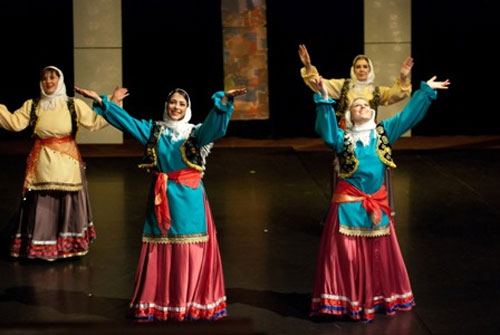The Leymer folk music group of Boushehr began its artistic activities in 1991 by winning first place at the 6th Fadjr international Music Festival. The group has also participated in many festivals like the Iran Epical Music Festival, First Iran Scholars Festival, as well as cultural and artistic festivals in Germany and Yemen.
Most of the group’s performances are the result of several years of research done by its director, Mohammad Reza Beladi, which are based on themes, melodies and folk poems that were found in popular folklore.
Mohammad Reza Beladi also managed a research project with the title of Anthropology of Music of Boushehr, which documents the cultural heritage of southern Iran. Reza Beladi has also written articles for foreign arts magazines, initiated cooperation with other folk music groups from different parts of Iran as an investigator, worked with IRAN TV on the production of several documentary films about Iranian folk and is the composer for the Boushehr folk theater.
Leymer uses various indigenous musical instruments in its performances, such as the Ney – Anban (bagpipes), Dammam (a kind of drum), cymbals known as senj, Tempo (a cup -like percussion that is held upright between the legs and played with the hands), Deyre & Deyreh Zangi (tambourine), Bugh (horn shaped like an antler, which is decorated in a unique way and it is used with the Dammam & the senj in a ceremony with the same name), Nay – jofti (another melodic instrument which is like the handle of the Nay – Anban but it has a separate emotion than NayAnban. This instrument is played by blowing in it without interruption.
The group specializes in different dance and music forms such as Senj & Dammam (A percussive dance and musical form), Dance of Mouloudi, char – Dastmaleh (A musical form and dance), Yazleh (Dance and song that includes several percussion instruments and harmonic clapping), Neymeh (Special ceremonies for native sailors that include dance and song with percussion instruments), Folk songs such as Beyt, Sharveh and jangnameh.


